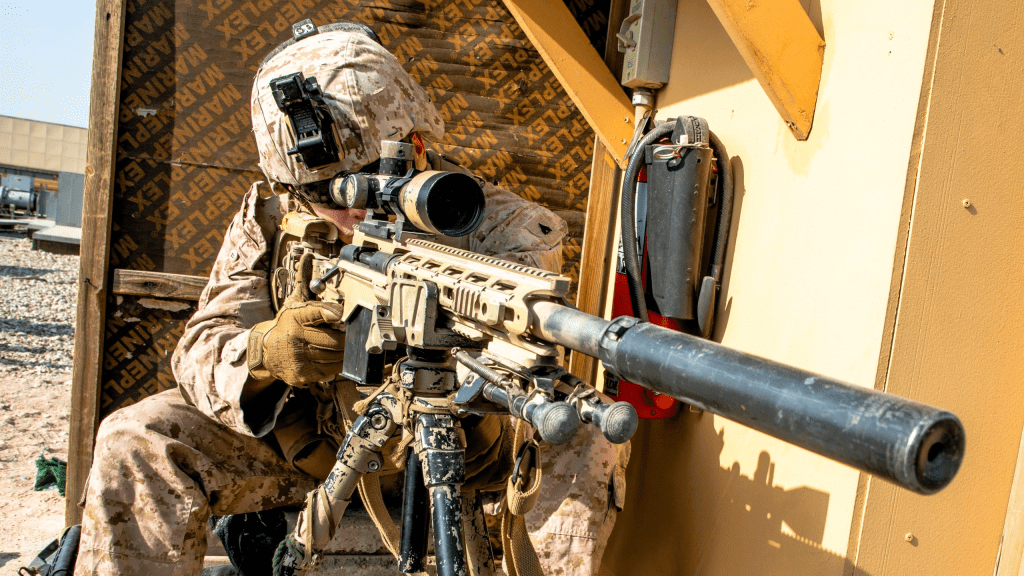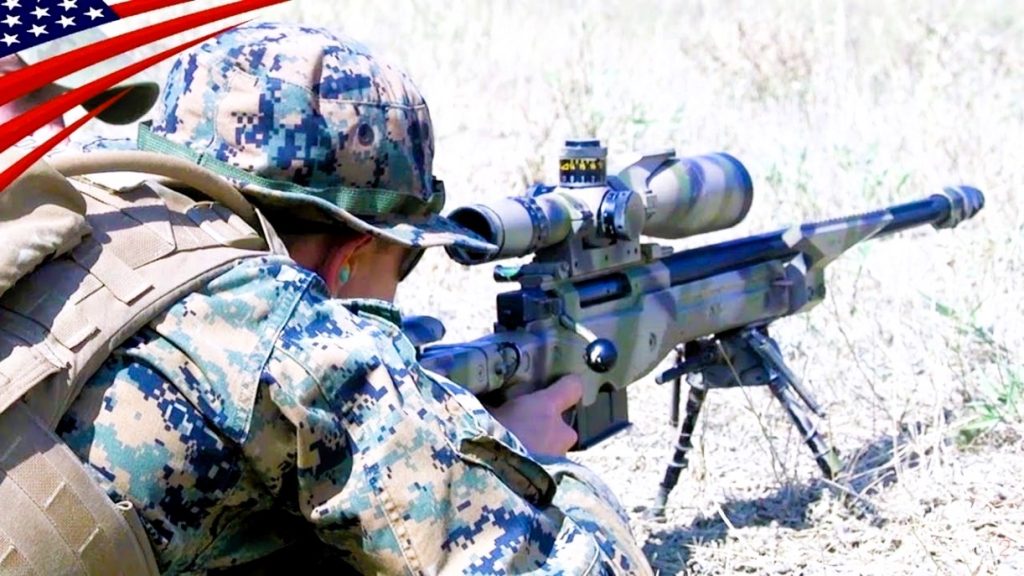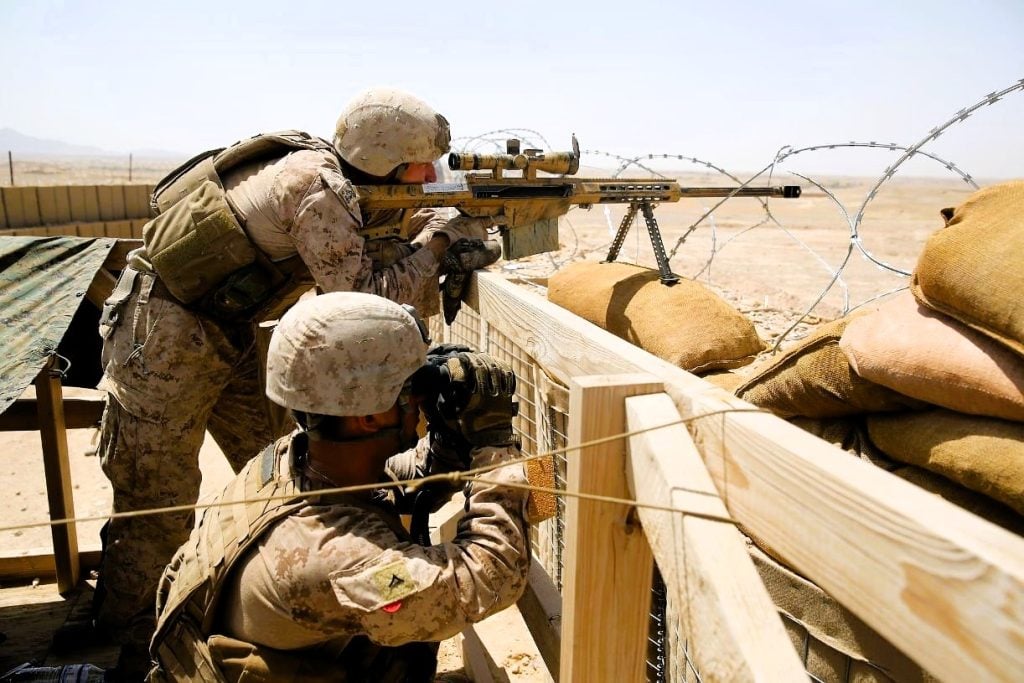
The U.S. Army boasts an arsenal of formidable sniper rifles, each designed to excel in various combat scenarios. Among these, three stand out for their exceptional performance and versatility: the M24, Mk-22, and M110. Each of these rifles has unique strengths tailored to specific missions, making them invaluable assets to the modern battlefield.

Introduction
The Importance of Sniper Rifles in Modern Warfare
In contemporary military operations, precision and the ability to engage targets at long distances are paramount. Sniper rifles are critical for providing overwatch, neutralizing high-value targets, and gathering intelligence. The U.S. Army has continually refined its sniper rifle selection to ensure its soldiers are equipped with the best tools for these tasks.
Overview of the Top Three Rifles
This article delves into the M24, Mk-22, and M110 sniper rifles, examining their histories, technical specifications, and the roles they play in modern warfare. Each rifle offers distinct advantages, and understanding these can shed light on why they are favored by the U.S. Army.
The M24: A Legacy of Reliability
Historical Background
Introduced in 1988, the M24 sniper rifle is based on the venerable Remington Model 700, a design that has been trusted by hunters and marksmen for decades. The military variant, the M24, was specifically tailored to meet the rigorous demands of military snipers.
Technical Specifications
- Caliber: 7.62x51mm NATO
- Barrel Length: 24 inches
- Weight (Loaded): 15 pounds
- Magazine Capacity: 5 rounds
- Scope: Leupold Mark IV 10x
- Effective Range: 800 meters
Features and Performance
The M24 is renowned for its accuracy and reliability. Its bolt-action mechanism ensures fewer malfunctions compared to semi-automatic rifles, making it a trusted choice in critical missions. The free-floating barrel design enhances accuracy by reducing barrel vibrations during firing. Additionally, the rifle’s robustness and simplicity contribute to its low maintenance requirements, further solidifying its reputation among snipers.
Notable Achievements
One of the most famous instances demonstrating the M24’s capabilities occurred in 2005 when Staff Sergeant Jim Gilliland achieved a confirmed kill at an astounding distance of 1,249 meters. This feat highlighted the rifle’s precision and the skill of the operator, cementing the M24’s place in military history.

The Barrett Mk-22: Versatility Redefined
Development and Adoption
The Barrett Mk-22, also known as the MRAD (Multi-Role Adaptive Design), represents the latest evolution in sniper rifle technology. Awarded a $49.9 million contract by the U.S. Army, Barrett has produced 2,800 units of this highly adaptable rifle, reflecting its trust and investment in cutting-edge sniper equipment.
Technical Specifications
- Caliber: 7.62x51mm NATO, .300 Norma Magnum, .338 Norma Magnum
- Barrel Length: Variable
- Weight: Variable, optimized for portability
- Magazine Capacity: Varies by caliber
- Scope Mount: Full-length M1913 Picatinny rail
- Effective Range: Over 1,000 meters
Design and Flexibility
The Mk-22’s modular design allows it to be configured for different calibers and missions. This adaptability is crucial for modern warfare, where missions can vary widely in terms of environment and engagement distance. The rifle features a folding stock, adjustable cheek rest, and interchangeable barrels and bolts, making it highly customizable for different operators and scenarios.
Field Performance
The Mk-22 excels in both versatility and concealment. Its suppressor reduces the sniper’s auditory and visual signature, enhancing survivability after taking a shot. The fluted barrels not only reduce weight but also improve heat dissipation, allowing for sustained accuracy over multiple shots.
The M110: Semi-Automatic Speed and Precision
Origins and Design
The M110 Semi-Automatic Sniper System (SASS) is a product of advancements in the AR-10 platform, incorporating features from the AR-15 to create a rifle optimized for urban and medium-range engagements. It was specifically designed to address the needs of snipers operating in dynamic and challenging environments like those encountered in Afghanistan and Iraq.
Technical Specifications
- Caliber: 7.62x51mm NATO, 6.5mm Creedmoor
- Barrel Length: 20 inches
- Weight (With Suppressor): 17.3 pounds
- Magazine Capacity: 20 rounds
- Scope: Leupold Mk4 3.5-10x40mm
- Effective Range: 800 to 1,000 meters
Advantages of Semi-Automatic Fire
The M110’s semi-automatic action allows for rapid follow-up shots, a crucial advantage in scenarios where multiple targets may need to be engaged in quick succession. This capability makes it particularly effective in urban combat, where threats can emerge suddenly and from various directions.
Enhanced Features
The M110 is equipped with a full-length rail system, allowing for the attachment of various optics, night-vision devices, and other accessories. Its suppressor further aids in the sniper’s concealment, a critical factor in both offensive and defensive operations.
Practical Application
The familiarity of the M110’s design to that of the M16 and M4 makes it easier to train soldiers, as many aspects of operation and maintenance are similar. This commonality also allows regular infantry units to deploy designated marksmen with the M110, extending the reach and precision of standard squads.

Comparative Analysis of the Top Three Rifles
Performance in Different Scenarios
Long-Range Engagements
For long-range precision, the M24 and Mk-22 are superior due to their bolt-action design and advanced optics. The M24’s historical reliability and the Mk-22’s adaptability to different calibers give them an edge in engagements beyond 1,000 meters.
Urban and Dynamic Environments
The M110 shines in urban settings, where its semi-automatic capability allows for quick response times and multiple engagements. Its design caters to rapid target acquisition and flexibility in fast-paced combat situations.
Versatility and Adaptability
The Mk-22 stands out for its modular design, allowing operators to switch between calibers and configurations as needed. This flexibility makes it an all-rounder, capable of performing in various environments and mission profiles.
Ease of Use and Training
The M110’s similarity to the widely used M16 and M4 makes it easier to integrate into regular infantry units. This familiarity reduces training time and increases operational efficiency, especially in units that require designated marksmen.
Here’s the comparative analysis :
| Performance Scenario | M24 | Mk-22 | M110 |
|---|---|---|---|
| Long-Range Engagements | – Superior precision due to bolt-action design | – Bolt-action design and adaptable to different calibers | – Less optimal compared to M24 and Mk-22 |
| – Historical reliability beyond 1,000 meters | – Advanced optics provide edge beyond 1,000 meters | – Semi-automatic limits long-range precision | |
| Urban and Dynamic Environments | – Less suited due to bolt-action mechanics | – Adequate but not specialized for rapid engagements | – Excels with semi-automatic capability |
| – Slower response time in fast-paced situations | – Modular design offers some flexibility | – Rapid target acquisition and quick response times | |
| Versatility and Adaptability | – Primarily long-range focused | – Stands out for modularity and multi-caliber options | – Versatile but less adaptable in caliber/configurations |
| – Limited adaptability in varied mission profiles | – Can perform well in various environments and missions | – Best suited for urban and mid-range scenarios | |
| Ease of Use and Training | – Requires specific training due to bolt-action use | – Moderate training needed for modular and multi-caliber use | – Easy to integrate due to similarity with M16/M4 |
| – More training time compared to M110 | – Training complexity due to versatility | – Reduces training time and increases efficiency |
Conclusion
While each rifle in the top three has its distinct advantages, the choice of the best sniper rifle ultimately depends on the mission requirements. The M24 offers unparalleled reliability and long-range precision, making it ideal for traditional sniper roles. The Mk-22’s versatility and adaptability make it a top choice for varied and unpredictable combat scenarios. The M110’s semi-automatic action and ease of integration with existing infantry units make it indispensable for urban warfare and rapid engagements. The M24, Mk-22, and M110 each represent the pinnacle of sniper rifle design in their respective categories. Their continued use and development highlight the U.S. Army’s commitment to maintaining superior long-range engagement capabilities. As technology advances, these rifles will undoubtedly evolve, but their legacy in modern warfare is already well established.


